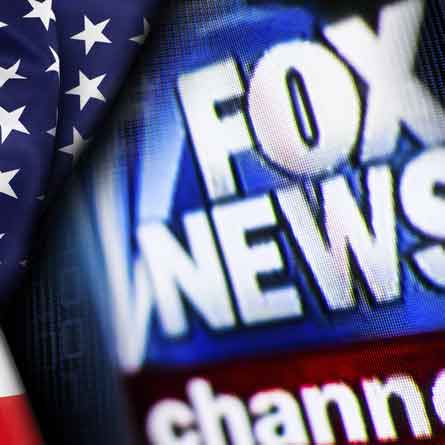Fox News host Jessica Tarlov expressed criticism towards Republican officials on Wednesday, April 9, following President Donald Trump’s unexpected decision to halt extensive tariffs that had disrupted financial markets globally over the previous week.
“What always sticks out to me when we go on this Trumpian merry-go-round is the ritualistic humiliation that he subjects for people who work for him,” Tarlov remarked to her colleagues on “The Five.”
Trump’s sudden change of course occurred just one week after the announcement of what his administration termed “Liberation Day” tariffs. The president announced on Truth Social that he would pause the import duties for 90 days for most countries, excluding China.
Treasury Secretary Scott Bessent quickly adapted to this shift, describing it as part of Trump’s “successful negotiating strategy.” According to Bessent, numerous countries had sought to renegotiate their trading relationships with the United States amid the market volatility of the past week.
White House Press Secretary Karoline Leavitt defended the president’s reversal, criticizing media coverage and suggesting reporters should have consulted Trump’s 1987 book, “The Art of the Deal,” to better understand his tactics. Leavitt suggested media had misjudged Trump’s intentions and incorrectly predicted that other nations would align more closely with China, when the opposite had occurred.
The announcement led to a historic rally in U.S. stocks, with the S&P 500 surging 9.5% – marking the largest single-day increase since 2008. This dramatic market reaction highlighted the extent to which Trump’s initial tariff announcement had unsettled global financial systems.
While most countries received a temporary reprieve, Trump raised tariffs on Chinese imports to 145%. The administration described this approach as rewarding countries that do not retaliate while maintaining pressure on China, the third-largest supplier of imports to the United States.
Tarlov noted that Trump himself had admitted the tariff pause was not part of a grand strategy from “The Art of the Deal.” When questioned about the bond market’s influence on his decision, the president conceded he noticed people’s unease. Tarlov emphasized that Trump “had to cave” on his original plan.
She also highlighted the conflicting messages from administration officials like Bessent, who now claimed the reversal was the plan “all along” despite previously stating the administration would not back down from the tariff policy.
“So, you were OK then with being made out to be a complete liar because you’ve been doing interviews on our network, going on the Sunday shows, saying, ‘Absolutely not, we’re not capitulating on this, we’re not going back on it,'” Tarlov said.
Other Trump supporters praised the move as a calculated negotiating tactic. Billionaire supporter Bill Ackman characterized it as part of Trump’s strategy to secure better trade terms from other countries. House Speaker Mike Johnson echoed this sentiment.
However, some Republican senators voiced concerns over the “baseline” 10% tariff rate that remains in effect, considering it high and potentially harmful to the economy.
The sudden policy shift has caused significant disruption across global supply chains. Freight orders have surged as companies that had paused shipments now resume operations. Logistics providers report a rush of orders for construction equipment, engines, truck parts, and other goods.
Despite the temporary reprieve, uncertainty remains high in several industries. The automotive and aerospace sectors continue to delay shipments due to concerns about future policy changes.
The fluid situation is forcing importers to frequently reassess their decisions. Border state economies heavily reliant on trade, such as New Mexico, where exports have grown significantly in recent years, face particular challenges in navigating the rapid changes in trade policy.
The president is reportedly considering granting exemptions to tariffs for individual companies and examining potential tariffs for other industries, including pharmaceuticals and lumber, adding another layer of complexity to an already unpredictable trade environment.
Goldman Sachs and JP Morgan had forecasted that Trump’s original steep tariff plan could trigger a recession in the U.S. economy, underscoring the significant economic stakes involved in these trade decisions.

